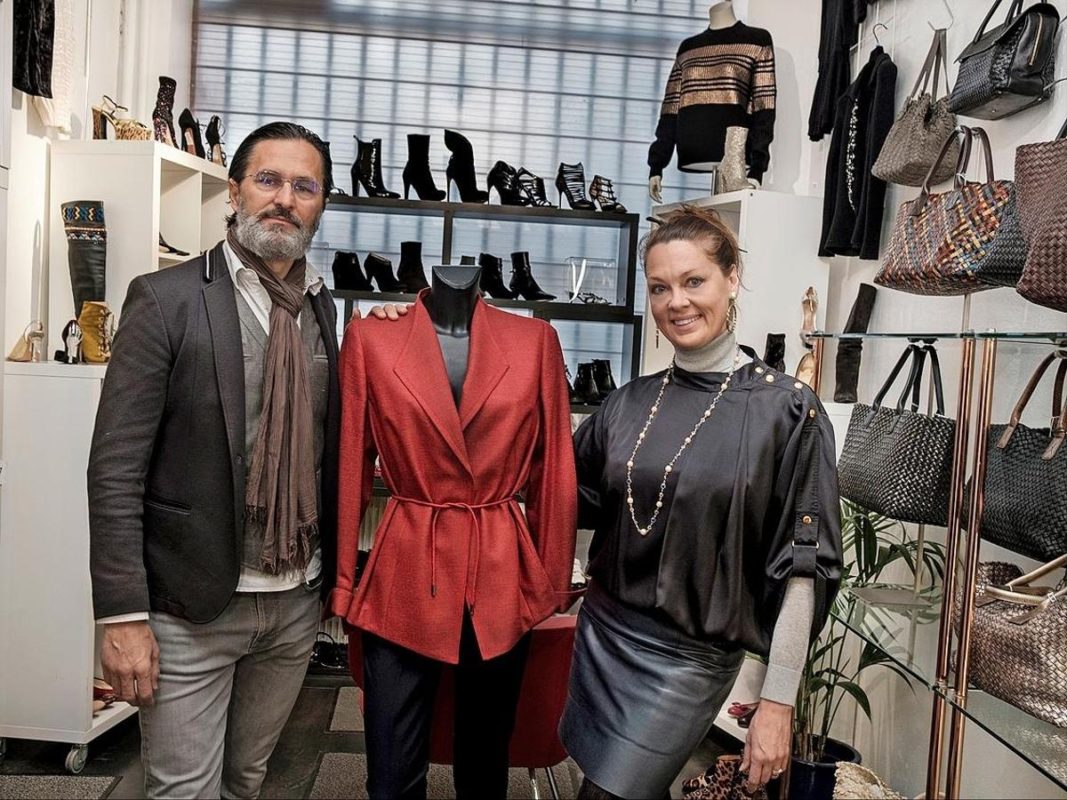Photo: Christophe Obradovic and Giji Gya, from Downtown Uptown Genève. © Enrico Gastaldello
By Frédéric Thomasset, TDG.
(Read the original article in French here.)
In their boutique dedicated to the resale of luxury fashion, on rue De-Monthoux in Pâquis, Giji Gya and Christophe Obradovic have decided to take their time – a little bit. Around them, the second-hand world is bustling online. On the internet or on social media, we sometimes have the impression that everything is bought, sold and then resold almost instantly. A consumer frenzy that the two founders of Downtown Uptown know well, since they too made the digital leap (in 2015). This does not prevent them from campaigning for another path, for more sustainable fashion.
How is the current second hand market organized?
We are witnessing a rapid multiplication of protagonists. We are talking about their number, of course, but also about the diversity of models put in place. We can think of the brands that operate by donations – Caritas, Emmaus – thrift stores, the resale of networks – between friends, acquaintances -, young Instagram entrepreneurs or even the large digital platforms which contribute a significant portion of transactions. Each in their own way is active online and tries to meet an ever stronger and greater demand.
Is a diversification of models to the advantage of the consumer?
At first glance, one might think that the multiplication of options should serve the customer well, but unfortunately we fear that they help to make the market more murky. Faced with a global offering online, consumers often lack benchmarks and find themselves plunged into a jungle where prices vary enormously depending on the country where the sale is made. This competition results, for us, in a race to the bottom, which diminishes the quality of services, products and human relations in our sector of activity.
How do we combat this negative aspect?
The world is going digital, of course, but for us, the solution lies in the creation of a hybrid model in which online and physical sales complement and enrich each other. There must be a direct link with the consumer, especially in the second-hand sector, where issues of counterfeiting, product condition or price transparency are at the heart of all transactions. This contact also allows us to explain the values specific to a brand. We have been campaigning for this since the start of our business – the store was founded in 2014 – for “slow fashion”. We promote a more ethical, more sustainable fashion, based on high-end items whose quality allows the product to last over time.
Precisely, you are active in luxury. Does it have a particular status in the second hand market?
Luxury fashion is by its production, in essence, more expensive. It therefore requires greater guarantee and reflection before purchase. The presence of a physical store is all the more appreciable, as a high-end item can be touched, tried on, and its story told. Not to mention that meeting a customer can help create trust. A well-informed customer is a reassured customer. To help them in his process, we favour offering items in our boutique that have had only one owner. It is true that this may seem surprising, at a time when everything passes from hand to hand almost frantically.
https://tdg.ch/sur-instagram-les-entrepreneurs-de-la-basket-sont-rois-183020741889

